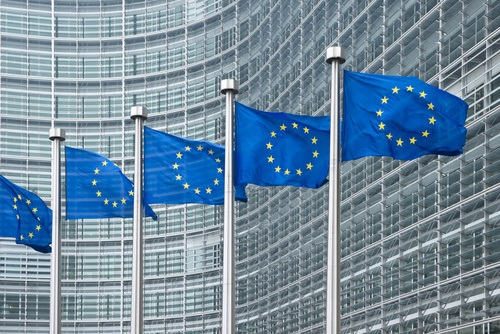An ex-ante impact assessment/ex-post evaluation perspective for parliamentary committees
Written by Milan Remáč and Stefano Vettorazzi,

This briefing is intended as a background overview for parliamentary committees planning their activities in relation to the European Commission’s 2020 work programme (CWP 2020). It offers a brief description of the work programme’s content and of related publications provided by the Ex-Ante Impact Assessment Unit (IMPA) and the Ex-Post Evaluation Unit (EVAL) of the European Parliamentary Research Service (EPRS), in particular initial appraisals of Commission impact assessments and implementation appraisals.
Following the same format as in previous years, the CWP 2020 announces multiple legislative proposals, whether entirely new or updating existing legislation. Also, as in previous years, the annexes to the CWP 2020 provide a fairly clear overview of new initiatives, regulatory fitness and performance (REFIT) initiatives, pending priority proposals, intended withdrawals and repeals of existing legal acts envisaged. Under the CWP 2020, the Commission plans to submit at least 97 new legislative and non-legislative initiatives to the European Parliament, and at least 44 REFIT initiatives (both legislative and non-legislative), by the end of 2020.
Commission work programme 2020 communication
On 29 January 2020, the new European Commission published and presented its work programme for 2020: ‘A Union that strives for more’, COM(2020) 37. This sets out a targeted agenda to implement the von der Leyen Commission’s six priorities for 2019-2024 and the key initiatives that support them. The six priorities are:
- A European Green Deal,
- An economy that works for people,
- A Europe fit for the digital age,
- Promoting our European way of life,
- A stronger Europe in the world and
- A new push for European democracy.
The European Commission presented the CWP 2020 in the form of a communication, with five annexes providing more in-depth information about the Commission’s legislative and non-legislative intentions for 2020.
The communication is structured along the six priorities set out in President von der Leyen’s political guidelines and focuses on the priorities for the European Parliament and those in the European Council’s Strategic Agenda for 2019-2024. The work programme focuses in particular on the opportunities that can be generated by ‘the twin ecological and digital transition’. According to the CWP 2020, the UN Sustainable Development Goals will be placed at the centre of EU policy-making.
The Commission underlines its strong commitment to strengthen its special relationship with the European Parliament, and in this regard supports a right of initiative for the Parliament. Better regulation will continue to be the main tool for designing and evaluating EU policies and laws. The CWP 2020 explicitly refers to the application of a ‘one in, one out’ approach (although it does not provide any further explanation),and draws on the benefits of strategic foresight for the design and implementation of policies for the years to come.
The unprecedented challenge of negotiating a new partnership with the United Kingdom distinguishes the CWP 2020 from previous work programmes.
Based on the CWP 2020, the European Commission, the European Parliament and the Council will now start discussions with a view to establishing a list of joint legislative priorities on which co-legislators agree to take swift action.
Read the complete briefing on ‘European Commission Work Programme for 2020‘ in the Think Tank pages of the European Parliament.








Be the first to write a comment.